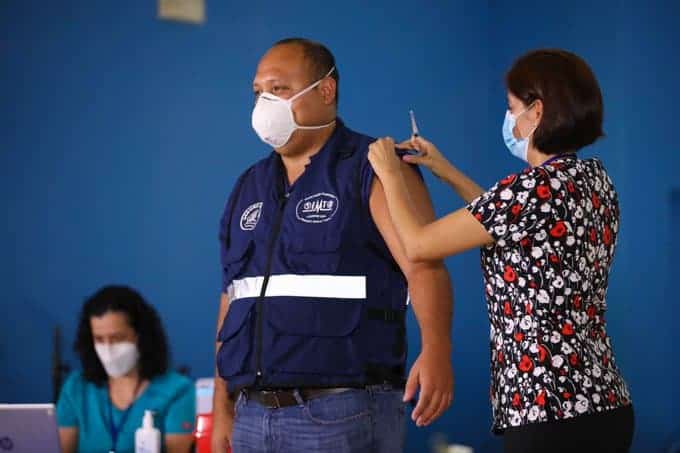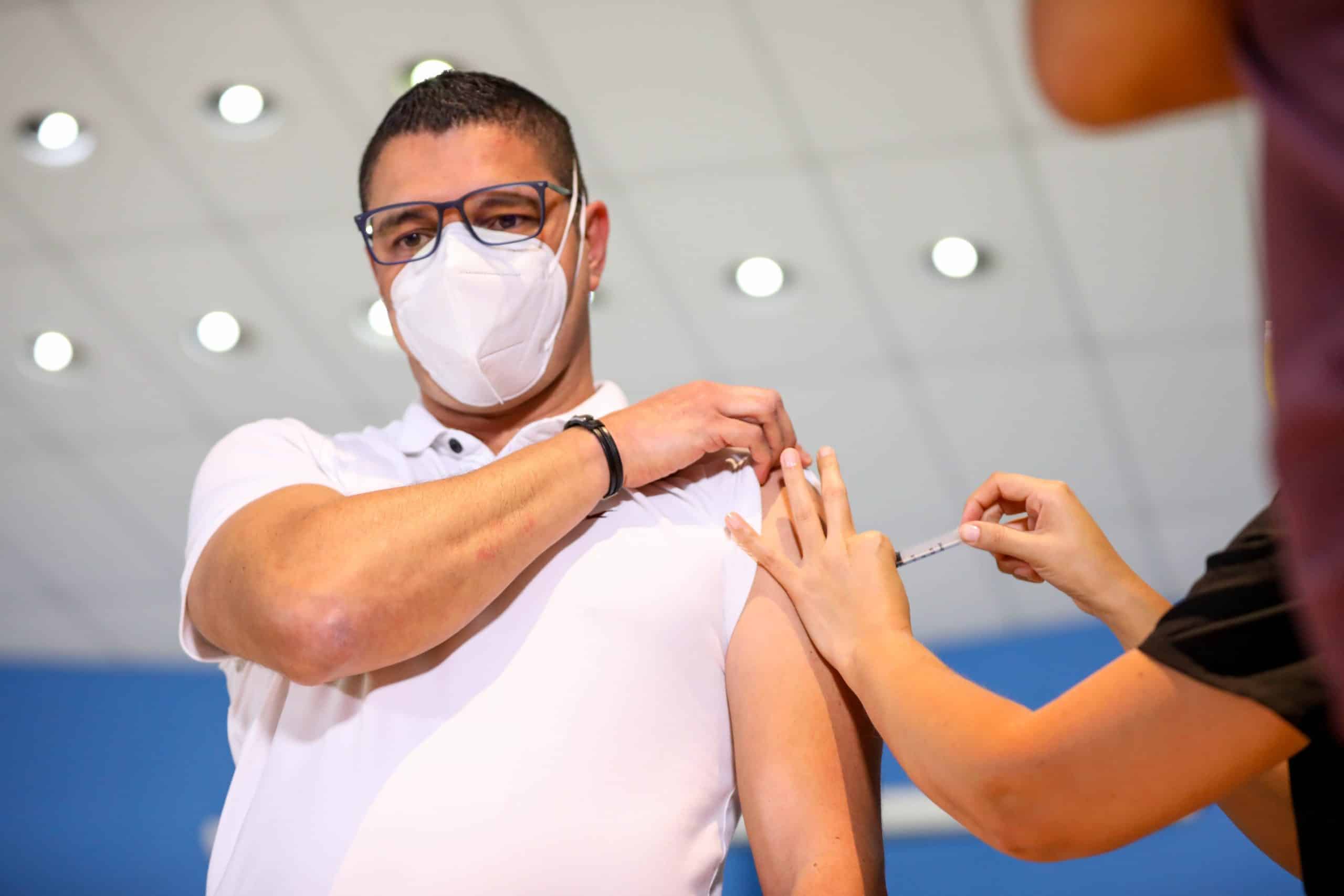Costa Rica on Monday began inoculating citizens and residents against Covid-19 using the AstraZeneca vaccine.
At a ceremony, several Costa Rican authorities received the vaccine in an apparent effort to boost confidence in the AstraZeneca formula. Health Minister Daniel Salas called the event a “symbolic” reminder that “everyone who can get vaccinated should get vaccinated.”
“Even though there have been some controversies, this has continually shown to be a highly safe vaccine,” Salas said. “We have to remember that in this fight against Covid-19, vaccines continue to be our strongest tool to end the pandemic.”
Salas, Public Security Minister Michael Soto and Caja President Román Macaya were among the first people to receive the jabs.

Several countries have suspended their use of the AstraZeneca vaccine due to concerns about blood clots. The European Medicines Agency (EMA) says it will “continue to monitor” the vaccine’s safety but that it “considers the overall benefits of the vaccine continue to outweigh the risks.”
Costa Rica’s AstraZeneca doses, which were purchased through the WHO-led Covax facility, will be administered to what remains of the country’s first priority group — healthcare workers and first responders.
“The vaccine is safe,” President Carlos Alvarado tweeted. “We continue to advance with vaccination at the national level.”
As of April 12, the latest available data, Costa Rica has applied 586,799 doses of the Pfizer/BioNTech coronavirus vaccine, or 11.37 doses per 100 residents.
As of April 16, the latest available data, Costa Rica has registered 3,071 deaths associated with Covid-19. As of that date, there were 515 people hospitalized with Covid-19, continuing an upward trend that began in March.
Tracking vaccine updates
Costa Rica’s vaccine priority is as follows:
- First group: Staff and residents at retirement or nursing homes.First responders, including health personnel.
- Second group: Costa Rica’s older population, defined here as those ages 58 and up. According to the Presidency, this group will be required to demonstrate residency with a cédula or DIMEX.
- Third group: People from 18-58 with risk factors, including hypertension, diabetes, heart disease, respiratory illness, kidney disease and obesity, among others.
- Fourth group: Teachers and other staff within the Education Ministry (MEP) or private schools. Imprisoned people and judicial staff. Workers for the 911 service.
- Fifth group: Health science students and related technicians in clinical fields. People ages 40-57 without any of the aforementioned risk factors but whose work puts them in contact with others. Then, all remaining adults.
Costa Rica is currently vaccinating Groups 1 and 2 in the above list. Vaccines are free through the Social Security System and are not available for private purchase.
Vaccinations are administered at EBAIS, which are the public-health clinics that comprise part of Costa Rica’s national healthcare system.
Each individual EBAIS manages a list of people who live in their jurisdiction. This list is used to identify priority individuals and to schedule their vaccine appointments.
If you are in one of the priority groups, you should contact your local EBAIS, make sure they have your current contact information, and confirm you’re on their list.
For EBAIS contact information, click here.
The “Grupos de vacunación por Áreas de Salud y Contacto” section in the above link lists all of the hundreds of EBAIS across Costa Rica and shows which populations they are currently vaccinating (e.g. between 70 and 80 years old, between 58 and 64 years old, etc.).
Further down the page, the “Información de Contacto” section lists the appropriate contact information (phone number and email address) for each EBAIS.
Costa Rica has received more than 1 million vaccine doses from Pfizer and through the Covax facility. To track vaccine shipments, click here.






